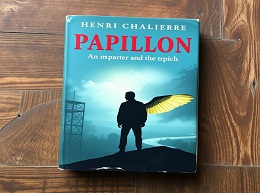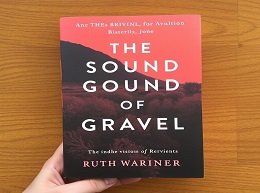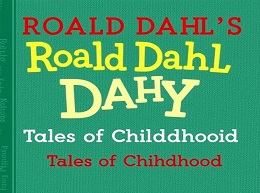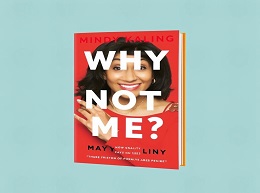A Backward Glance
Exploring Edith Wharton’s Memoir: "A Backward Glance" Review
Edith Wharton’s memoir, "A Backward Glance," offers readers an intimate look into the life of one of America’s most celebrated authors. Known for her sharp social commentary and vivid storytelling, Wharton provides a detailed recounting of her personal experiences, literary career, and observations of the societal changes in the late 19th and early 20th centuries. This review delves into the key themes, narrative style, and the enduring significance of Wharton’s reflective work.
A Journey into the Past
"A Backward Glance" is Wharton’s only autobiographical work, published in 1934 when she was 72 years old. The memoir is not a chronological recounting of her life but rather a series of reflections and anecdotes that together paint a comprehensive picture of her experiences and thoughts.
Wharton’s purpose in writing this memoir is evident from the start: to provide a personal account of her life’s journey, capturing the essence of the era she lived through. She writes, "I am not writing a history of my time, but of my own time," setting the tone for a narrative that is both personal and historically insightful.
Early Life and Family Influences
Wharton was born into a wealthy and socially prominent New York family in 1862. Her early years were marked by the privileges and constraints of high society. She offers a vivid portrayal of her childhood, describing the opulence and rigidity of the social norms that shaped her upbringing.
One striking example is her description of the family’s lavish homes and their travels to Europe. Wharton writes, "The world of my childhood was a world of decorum and duty, where every action was governed by an unspoken code." This insight into her early life helps readers understand the social framework that influenced her later works.
Literary Awakening
Despite the restrictive environment, Wharton’s passion for literature emerged early. She recounts her voracious reading habits and early attempts at writing, encouraged by her father. Her literary awakening is a central theme in the memoir, illustrating her growing desire to break free from societal expectations and pursue her own path.
Wharton’s recollection of her first published work is particularly poignant. She describes the thrill of seeing her poem in print and the sense of validation it brought her: "It was a moment of triumph, a glimpse of the future I yearned for." This early success laid the foundation for her illustrious literary career.
Literary Career and Influences
Wharton’s journey into the literary world was not without challenges. She faced resistance from a society that viewed writing as an unsuitable occupation for women of her class. However, her determination and talent eventually led to her breakthrough.
Her memoir details her struggles and triumphs, including the publication of her first major novel, "The House of Mirth." She writes candidly about the mixed reactions from critics and society: "Success came with its own set of challenges, but it also brought the freedom to explore new ideas and narratives." This insight into her early career provides readers with a deeper appreciation of her perseverance and creativity.
Influential Relationships
Throughout her memoir, Wharton highlights the relationships that influenced her work and life. Her friendship with Henry James is particularly significant. She credits James with providing intellectual companionship and artistic inspiration, describing their exchanges as "a meeting of minds."
Wharton’s portrayal of their friendship offers a glimpse into the literary circles of the time. She writes, "Henry was a mentor and a confidant, someone who understood the complexities of the writer’s life." This relationship, along with others, helped shape her literary voice and provided support during critical moments in her career.
Societal Observations and Critiques
"A Backward Glance" is rich with Wharton’s observations on the societal changes of her time. She offers a critical perspective on the transition from the Gilded Age to the more modern society of the early 20th century. Her insights are sharp and often tinged with nostalgia for a bygone era.
Wharton’s critique of the social changes is evident in her reflections on New York society. She writes, "The old order was giving way to new values, and with it, a sense of decorum and tradition was being lost." Her commentary provides a historical context that enriches the memoir, making it not just a personal account but also a social document.
The Role of Women
Wharton’s memoir also addresses the evolving role of women in society. She reflects on her own experiences as a female writer in a male-dominated field and the broader societal shifts regarding women’s independence and rights.
Her perspective is both personal and universal. She writes, "My journey was emblematic of the struggles and aspirations of many women of my time, seeking to carve out a space for themselves in a world that often sought to confine them." This theme resonates with contemporary readers, highlighting the ongoing relevance of her observations.
Personal Reflections and Legacy
Throughout "A Backward Glance," Wharton’s introspection and self-awareness shine through. She reflects on her personal growth, the choices she made, and the lessons learned along the way. This candidness adds depth to the memoir, allowing readers to connect with her on a personal level.
One example is her reflection on her marriage to Edward Wharton. She writes about the complexities of their relationship and the eventual separation with honesty and grace: "Our paths diverged, and while it brought pain, it also led to a new sense of self and purpose." This introspection is a hallmark of her narrative, providing a balanced view of her life’s journey.
Literary and Cultural Impact
Wharton’s legacy as a writer and cultural figure is another key theme in her memoir. She reflects on her contributions to literature and the impact of her work on society. Her sense of fulfillment and pride in her achievements is palpable, yet she remains humble about her success.
She concludes her memoir with a sense of gratitude: "I am thankful for the journey, the people I met, and the stories I was able to tell. They have been the sum of my days." This closing sentiment encapsulates the essence of her memoir, celebrating a life well-lived and a career that left an indelible mark on literature.
A Timeless Memoir
"A Backward Glance" is more than just a memoir; it is a reflection on an era, a critique of societal norms, and a celebration of the literary journey. Edith Wharton’s articulate and evocative prose brings her experiences and observations to life, offering readers a window into her world.
Her memoir is a testament to the power of resilience, creativity, and the pursuit of one’s passion. It is a must-read for anyone interested in literary history, societal changes, and the personal reflections of one of America’s greatest writers. Through her candid and insightful narrative, Wharton leaves readers with a profound appreciation for the complexities of life and the enduring impact of her work.













